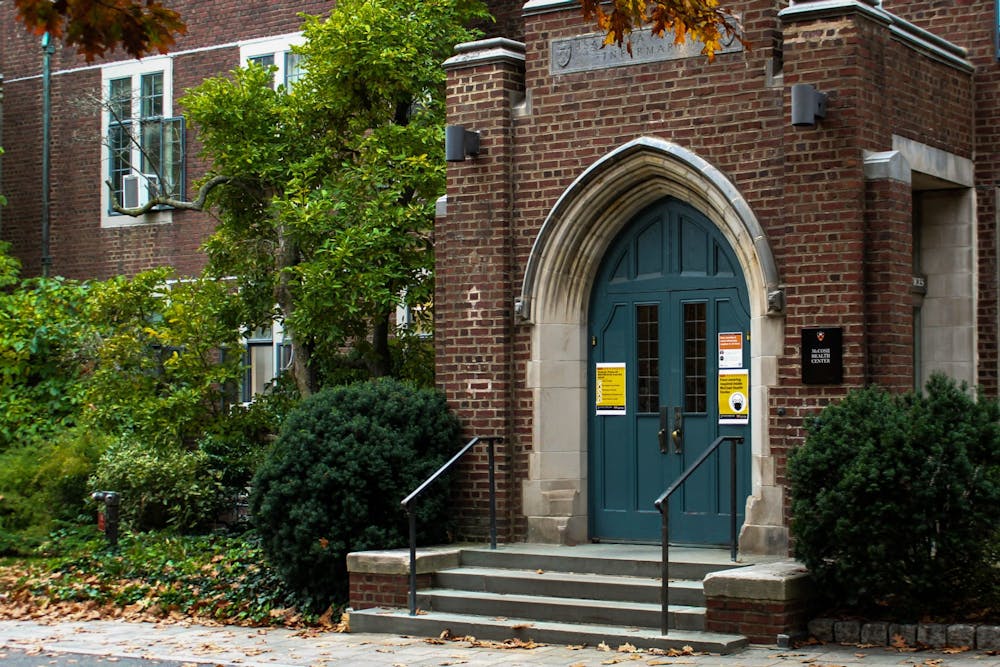In the days preceding election day on Tuesday, several campus groups announced that they would provide wellbeing-related resources for students across campus. Undergraduate Student Government communications sent an email to all undergraduate students on Monday to promote the provision of healthy spaces for self-reflection and relaxation as helpful support during a tense period for the nation.
Donald Trump defeated Kamala Harris in the presidential election, the Republican party regained control of the U.S. Senate, and the majority in the U.S. House of Representatives is yet to be declared as certain races have not been called. Many voters faced pressing topics on state ballot measures, including abortion and drug policy.
University Health Services (UHS) was one of the on-campus organizations that hosted an event. They held “Post-Election Listening Circles” with the intention of providing virtual and in-person drop-in spaces for students on the day after the election — Wednesday, Nov. 6. Post-Election Listening Circles are not a new initiative and UHS took the decision to build on previous listening circles in response to personal student feedback regarding the election.
University Spokesperson Jennifer Morrill wrote to The Daily Princetonian that “We have been hearing about lots of anxiety from students about the election and felt like listening circles can be a helpful way to allow students to process and get support from one another.”
Morrill also described openness as an emphasis of the listening circles. “The listening circles are a non-judgmental place to share feelings about the election. They are not structured. The counselor facilitating the circle starts by outlining ground rules, but then students are free to bring up whatever is on their minds,” Morrill said.
Although participants in these listening circles likely had the election at the forefront of their minds, Morrill was keen to note that concern about the election is not a phenomenon that has only showed up in the last few days and weeks. Throughout the whole semester, there have been instances of reported worry regarding the election. “Students have spoken to their counselors about feeling anxious and worried about the election and the outcome,” Morrill said.
While the UHS’s initiative is a short-term option for those wishing to express their thoughts and emotions following the election, Morrill noted that there may be students who will want further assistance through resources such as counseling, which is available at Counseling and Psychological Services (CPS). CPS is also sponsoring affinity center spaces.
The emphasis on post-election wellness was not exclusive to UHS listening circles. The Princeton Environmental Activism Coalition, alongside Sunrise Princeton, held an “Art Build” event at Campus Club on Wednesday evening to help members of the community process any emotions associated with election day.

Raphi Gold ’26, an organizer of the event, told the ‘Prince’ the art build was an opportunity not just for creating protest materials, but also for mental health in the aftermath of the election.
“Typically, art builds are targeted at a specific future action,” she said. “What makes this art build different is that it really is a mental health art build at the same time. We want to be talking and comforting each other.”
The event hosted art supplies used to “make a banner for a future protest that is not election-related, as well as posters for the walkout on Friday,” according to Gold.
Gold is a co-head Archives editor and associate Features editor for the ‘Prince.’

Sunrise Princeton plans to hold an election walkout on Nov. 8.
Frida Ruiz ’25, another attendee at the event, said that she attended because she “wanted to be in a community of people who felt the same way about what happened yesterday.”
“It’s refreshing to be able to think, why did things turn out the way they did? Then you realize that you’re not the only one feeling that way,” she added.
Reflecting on conversations at the art build, Ruiz said, “The discussions we’re having about how we feel and how we plan to move forward as a community are most important.”
The Princeton Gender + Sexuality Resource Center and the Office of Religious Life, who also held events, did not respond to a request for comment by the time of publication.
Andrew Arthur is a News contributor for the ‘Prince.’
Please send any corrections to corrections[at]dailyprincetonian.com.








